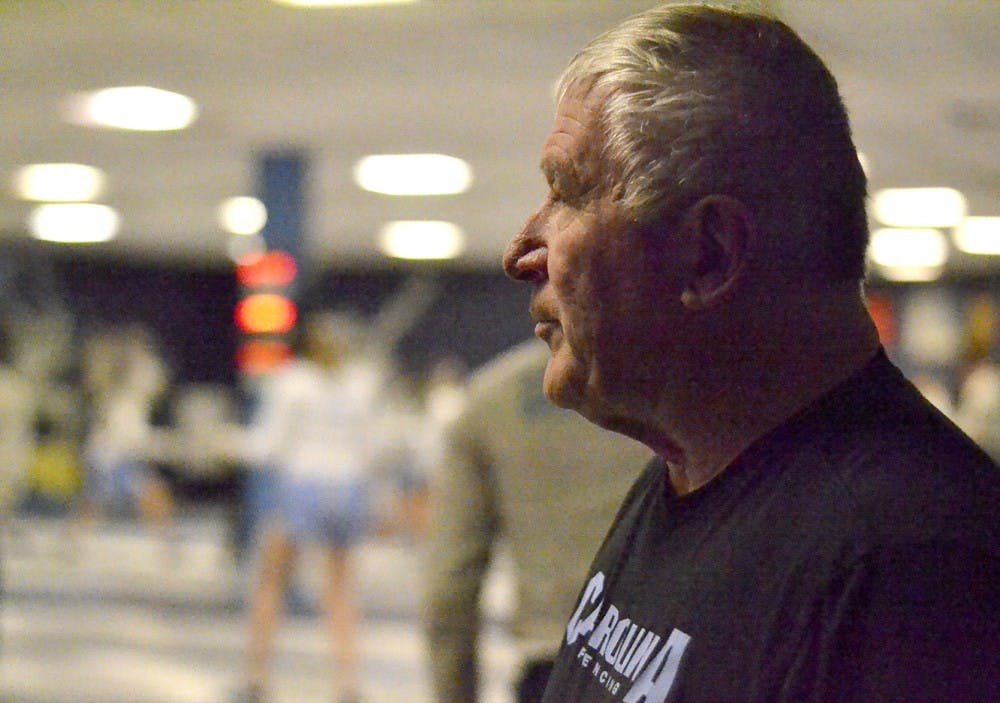Ron Miller is in the midst of his 50th season as the North Carolina fencing coach. With 1,450 wins under his belt, Miller has been at UNC longer than any other active coach. On Sunday, his team concluded its first major competition of the season in the Temple Open — with junior Meredith Bozentka winning gold in women's saber and two other fencers taking bronze.
The Daily Tar Heel: It was a pretty successful weekend for your team. Do you have any overall thoughts on the Temple Open?
Ron Miller: I think the main thing is this early in the season, this is our first national collegiate competition — we’ve had local competitions, and also one North American Circuit event — (but) this is the first time we really get to see the majority of the collegiate opposition we’re (going to) fence, especially early in the season.
So it was very consistent for us. In this tournament every year, we want to try to have the majority of our team in the top 32 — the sizes (of the fields) this year were between low 70s and close to 100. As long as we can be consistently near the top third or the top quarter, that’s a good performance for us ... We had a lot of fencers in the top eight, which is the final ... Not a lot of people do that. So that’s exciting, because it bodes well for the rest of the season.
One of the other things is that our young fencers, especially our first-years, performed very well. So most of them were in the top 20 and many were in the top 16 … and one was actually third in women’s foil — Carlexa Fevry. And Jacob Henkels in men’s epee finished seventh. So that part was, again, outstanding for us.
DTH: Were you expecting that kind of performance from your first-years?
RM: Actually, we were. It was a very good class. They work very hard, they have improved their fitness, they have improved their tactical base, their footwork … I mean, every aspect. Early season, they’re ahead of the game. And they’re really making their presence felt with the returners.
DTH: Did anything stand out that you think the team could improve on significantly after this first tournament?
RM: We have just really begun in the last week or two on tactics. So our tactics, moving forward — meaning pushing an opponent backwards — were ahead of what we did going backwards. We need to have both the upper-level teams use the same general tactics we do, which is a stronger, more offensive framework. But sometimes the other guy gets a jump on you so you have to be able to go backwards well, in addition. And we did not perform as well there as we wanted.




